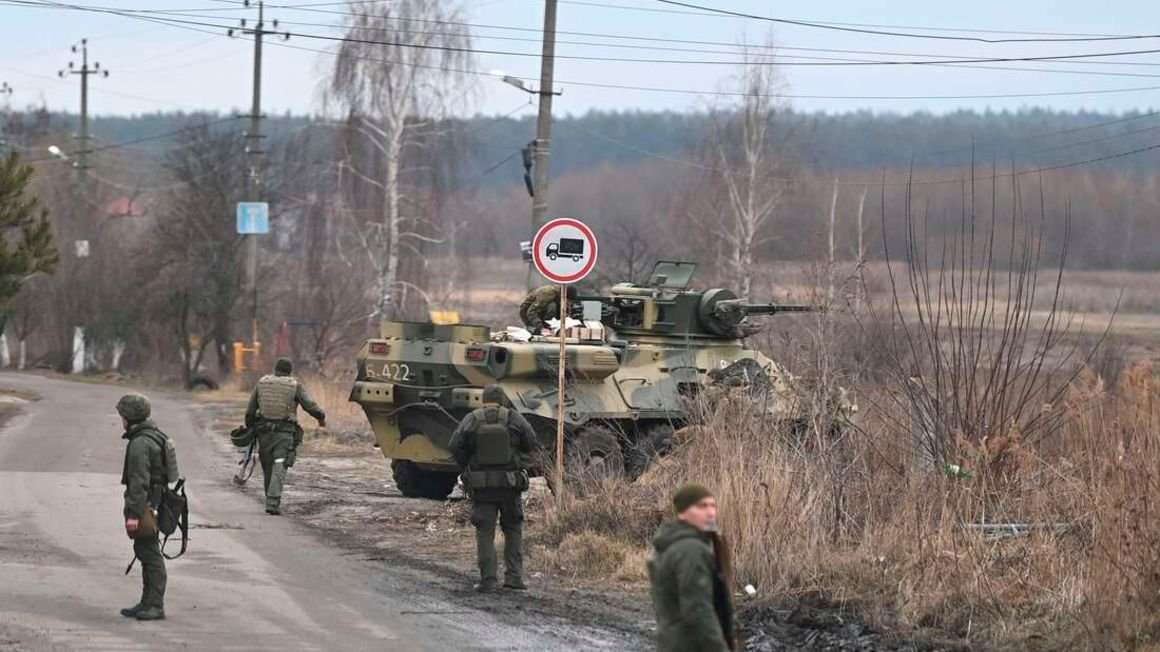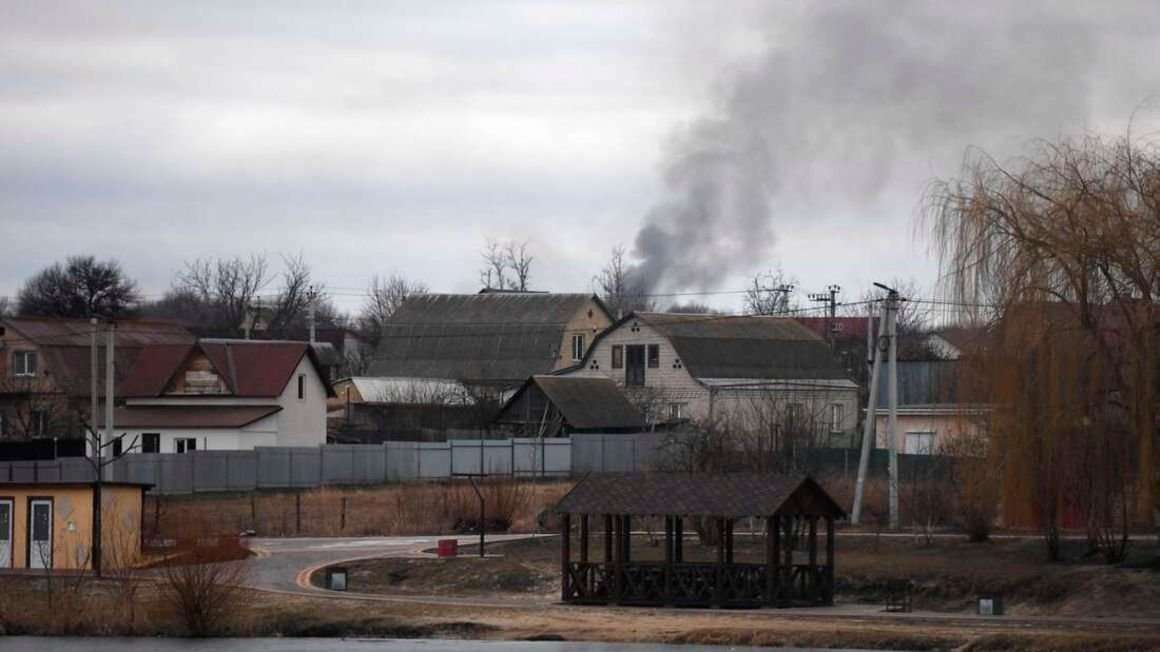Ukrainian forces battled Russian invaders on three sides on Thursday after Moscow mounted an assault by land, sea and air in the biggest attack on a European state since World War Two.
After Russian President Vladimir Putin declared war in a pre-dawn televised address, explosions and gunfire were heard throughout the morning in Kyiv, a city of three million people.
Missiles rained down on Ukrainian targets and authorities reported columns of troops pouring across Ukraine’s borders from Russia and Belarus to the north and east, and landing on the southern coasts from the Black Sea and Azov Sea.
The assault brought a calamitous end to weeks of fruitless diplomatic efforts by Western leaders to avert war. US President Joe Biden met his Group of Seven counterparts virtually on Thursday to discuss harsh sanctions, and was due to speak on Ukraine at 2.30pm (1730 GMT).
President Volodymyr Zelenskiy called on Ukrainians to defend their country and said arms would be given to anyone prepared to fight.
“What we have heard today are not just missile blasts, fighting and the rumble of aircraft. This is the sound of a new Iron Curtain, which has come down and is closing Russia off from the civilised world,” Zelenskiy said. “Our national task is to make sure this curtain does not fall across our land.”
Fierce fighting was taking place in the regions of Sumy and Kharkiv in the northeast, Kherson and Odessa in the south, and at a military airport near the capital Kyiv, an adviser to the Ukrainian presidential office said.

Zelenskiy said troops were trying to fend off Russians attempting to capture the Chernobyl nuclear power plant, just 90 km (60 miles) north of the capital. Regional officials said Ukrainian authorities had lost control of some territory in the Kherson region near Russian-occupied Crimea.
The highway heading west out of Kyiv was choked with traffic across five lanes as residents fled.
Biden called the Russian action an “unprovoked and unjustified attack”. EU Commission chief Ursula von der Leyen said the bloc would impose a severe new round of sanctions.
EU foreign affairs chief Josep Borrell said: “These are among the darkest hours of Europe since the Second World War.”
Ukrainian military authorities said 20 Russian helicopters and Mi-8 aircraft had landed paratroopers at Hostomel airport in the Kyiv region, where forces from both sides were fighting for control.

Unconfirmed reports of casualties included Ukrainian civilians killed by Russian bombardment and border guards defending the frontier, while Russia said three civilians had been wounded by Ukrainian shelling near the border.
Authorities in the southwesterly Odessa region said 18 people had been killed in a missile attack. At least six people were killed in Brovary, a town near Kyiv, authorities there said.
Even with a full-blown invasion underway, Putin’s ultimate aim is obscure. He said he did not plan a military occupation, only to disarm Ukraine and purge it of nationalists.
The outright annexation of such a vast, hostile country could be beyond even Russia’s military capabilities.
A senior US defence official said Washington believed the invasion was intended to “decapitate” Zelenskiy’s government.
But it is hard to see Ukrainians accepting any new leadership installed by Moscow.
“I think we must fight all those who invade our country so strongly,” said one man stuck in traffic trying to leave Kyiv. “I would hang every single one of them from bridges.”

Biden has ruled out sending US troops to defend Ukraine, but Washington has reinforced its NATO allies in the region with extra troops and planes.
A democratic nation of 44 million people, Ukraine is Europe’s biggest country by area after Russia itself. It voted for independence at the fall of the Soviet Union and aims to join NATO and the European Union, aspirations that infuriate Moscow.
Putin, who denied for months that he was planning an invasion, has called Ukraine an artificial construct carved from Russia by its enemies – a characterisation Ukrainians see as an attempt to erase their more than 1,000-year-old history.
While many Ukrainians, particularly in the east, speak Russian as a native language, virtually all identify themselves as Ukrainian.
In Kyiv, queues of people waited to withdraw money and buy supplies of food and water. Cars stretched for dozens of kilometres (miles) on the highway leading west towards Poland, where Western countries have prepared to receive hundreds of thousands of refugees.
“We’re afraid of bombardments,” said Oxana, stuck in her car with her three-year-old daughter on the backseat. “This is so scary.”
Credit: Source link